September 10, 2010

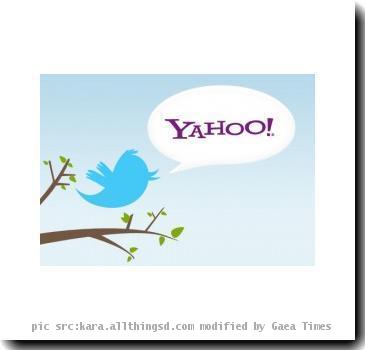
Twitter to use own Web link shrinker this summer
SAN FRANCISCO — Twitter plans to start using its own Web link shortener on addresses that users include in tweets.
Starting this summer, Twitter will use its new "t.co" domain name to shorten links that users post directly on Twitter.com or through applications such as TweetDeck. That will help the posts stay within the service's 140-character limit. The company is currently testing its linking technology with some employee accounts.
Users won't always see their links displayed as "t.co" addresses, though. If you get Twitter updates sent to your phone via text messaging, a link might show up as a "t.co" address. But you might see the full address or the Web page's title when looking at that same post on Twitter.com.
"Ultimately, we want to display links in a way that removes the obscurity of (a) shortened link and lets you know where a link will take you," Twitter spokesman Sean Garrett wrote on Twitter's blog Tuesday.
Garrett said that this method of packaging links is meant to improve user safety and will help Twitter gather data for its "promoted tweets," which are Twitter posts paid for by advertisers to appear in search results on the site.
He also noted that in March, Twitter started using its own "twt.tl" address to automatically channel links that users sent in messages directed specifically at another user. That was a way for Twitter to spot and cut down on the spread of malware and other unsavory content that links can lead to; Twitter can simply disable a "twt.tl" address if it led to a questionable site.
Twitter used to automatically shrink links on tweets as well — first using TinyURL, later using bit.ly — but the site doesn't currently do so. So if you want to share a long link with friends, you'd have to go to TinyURL, bit.ly or another service to shorten the link first.
Even after Twitter implements "t.co," Garrett said that users will still be able to use link shorteners of their choosing. This means you should still be able to take advantage of traffic analysis and other features that come with those services. But those shortened links will be converted into a "t.co" address.
The effect of Twitter's move on existing link shorteners is likely to be small. After all, they are also commonly used in e-mails, Facebook posts and other settings.
Nokia’s mobile strategy and measurement challenges
Sony ericsson isp 90 stylus pack for xperia retail packaging
Sony ericsson isp 90 stylus pack for xperia retail packaging
Posted by: vepemotevi at
03:42 AM
| No Comments
| Add Comment
Post contains 446 words, total size 4 kb.
September 09, 2010
Google sparring with Apple again, this time over advertising access to iPhone, iPad
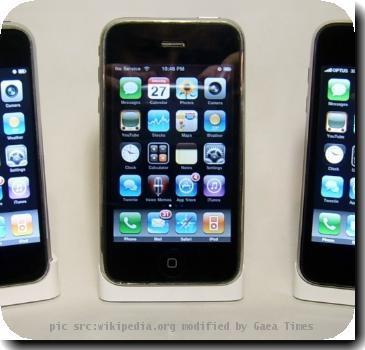
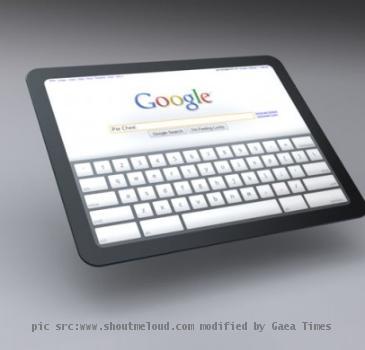
Google's AdMob attacks Apple's new mobile ad rules
SAN FRANCISCO — Google Inc. thinks its increasingly bitter rival Apple Inc. is trying to muscle it out of the mobile advertising competition on the iPhone, iPad and iPod Touch.
The latest dispute between the Silicon Valley powerhouses centers on a proposed change that could hobble Google's ability to sell and place ads on devices running on Apple's latest mobile operating system, which comes out this month.
Omar Hamoui, the executive in charge of Google's newly acquired mobile ad service, AdMob, attacked Apple's new restrictions in a blog posting Wednesday as a threat to competition. He also warned the change would decrease the ad revenue flowing to the developers of iPhone and iPad applications, a scenario that could drive up the prices that consumers pay for the programs.
Apple didn't immediately return calls seeking comment.
Google paid $750 million to buy AdMob, partly because of AdMob's success selling ads on the iPhone. AdMob, founded in 2006, was so good at it that Apple wanted to buy the company before being trumped by Google last fall.
Apple has since set up own ad service, iAd, fueling Google's suspicion that its rival wants to monopolize the commercial messages shown on the more than 50 million iPhones and iPads that have already been sold.
Under the terms of Apple's latest operating system for those devices, critical information for distributing and analyzing ads won't be shared with services owned by makers of other mobile operating systems.
That threatens to lock out AdMob because Google's Android operating system competes with the iPhone.
That could be a major blow to AdMob, which distributed 30 percent of its ads to iPhones, iPads and iPods in April. Hamoui indicated he still hopes to persuade Apple to scrap the rule change.
On the flip side, Apple's restrictions could be an advantage for smaller, independent ad networks that would still have all the usual data needed to place ads on iPhones and iPads. But that could turn out to be a handicap for mobile advertising services seeking to be bought by a larger company such as Microsoft Corp. that has its own mobile operating system.
It's unclear whether Apple will enforce the restrictions on how the ad data can be shared, said Noah Elkin, an analyst for eMarketer, a research firm.
"I think what we have here is two companies sparring for control of what is potentially a very big advertising market," Elkin said. The U.S. mobile ad market is expected to grow from about $600 million this year to more than $1.5 billion in 2013, according to eMarketer.
Both Google and Apple believe mobile devices eventually will supplant personal computers as the main way people surf the Web. Their dueling ambitions to be shape the direction of the mobile market have transformed the companies from allies to antagonists during the past year.
If Apple's new rules on mobile advertising data were to create a competitive barrier, it would likely attract the attention of antitrust regulators.
After a six-month review, the Federal Trade Commission approved Google's purchase of AdMob largely because the agency believe Apple's entrance into the mobile ad market would foster adequate competition. In its approval of the AdMob deal, the FTC vowed to continue to monitor the mobile ad market for anticompetitive behavior.
The FTC declined to comment Wednesday.
NYC mayor unconcerned after his e-mail address is among 100,000 leaked in iPad security breach
Blackberry 8300 8310 8320 face plate
Store Home Battery LG Chocolate 3 VX8560 Car ckberry curve 8300 8320 8310 Faceplate W/LENS Grey.
BlackBerry Curve 8330 8320 8310 8300 Desktop Cradle Charger w/ Extra.
original USB Data Cable for BlackBerry curve 8300/8310/8320 Phones USB
Blackberry 8300 8310 8320 face plate
Posted by: vepemotevi at
10:22 AM
| No Comments
| Add Comment
Post contains 658 words, total size 5 kb.
September 08, 2010
Iran dismisses sanctions, but tried to avoid them
UNITED NATIONS — The U.S. and its allies scored a long-sought victory Wednesday by pushing through new U.N. sanctions over Iran's nuclear program, punishments Tehran dismissed as "annoying flies, like a used tissue."
The sanctions target Iran's powerful Revolutionary Guard, ballistic missiles and nuclear-related investments. Oil exports, the lifeblood of Iran's economy, are not affected because targeting them would have cost the U.S. essential support from Russia and China.
President Barack Obama said the sanctions are the toughest Iran has ever faced. They required several months of difficult negotiations by the five veto-wielding permanent U.N. Security Council members — the U.S., Russia, China, Britain and France — and non-member Germany. This is the fourth round of sanctions aimed at getting Iran into serious discussions on its nuclear ambitions.
"Actions do have consequences, and today the Iranian government will face some of those consequences," Obama said. He left the door open to diplomacy but said Iran "will find itself more isolated, less prosperous and less secure" unless it meets its obligations under the Nuclear Nonproliferation Treaty.
Iranian President Mahmoud Ahmadinejad, on an official visit in Tajikistan, dismissed the new resolution.
"From right and from left, they adopt sanctions, but for us they are annoying flies, like a used tissue," he said.
Tehran insists its program is peaceful and aimed at producing nuclear energy. The U.S. and its allies say Iran is trying to produce nuclear weapons; they want Iran to suspend uranium enrichment and start negotiations aimed at ensuring that it uses nuclear technology only for peaceful purposes.
The new resolution bans Iran from pursuing "any activity related to ballistic missiles capable of delivering nuclear weapons," bars Iranian investment in activities such as uranium mining and prohibits Iran from buying several categories of heavy weapons including attack helicopters and missiles. Iran, however, already has most of what it would need to make a weapon.
Iran's top nuclear negotiator, Saeed Jalili, warned that "choosing the option of confrontation will bring Iran's resolute response," according to Iran's official news agency. He did not elaborate.
Iran's U.N. Ambassador Mohammad Khazaee accused the United States, Britain and their allies of abusing the Security Council to attack Iran.
"No amount of pressure and mischief will be able to break our nation's determination to pursue and defend its legal and inalienable rights," Khazaee said. "Iran is one of the most powerful and stable countries in the region and never bowed — and will never bow — to the hostile actions and pressures by these few powers and will continue to defend its rights."
U.S. Ambassador Susan Rice dismissed Khazaee's statement as "ridiculous … reprehensible, offensive, and inaccurate" and declared that "these sanctions are as tough as they are smart and precise."
The resolution was approved by a vote of 12-2 with Lebanon abstaining and Brazil and Turkey voting "no." Turkey and Brazil, both non-permanent council members, brokered a fuel-swap agreement with Iran that they offered as an alternative solution to concerns Tehran may be enriching uranium for nuclear weapons.
Lebanon's U.N. Ambassador Nawaf Salam said he abstained because the government failed to "reach a final position." A U.N. diplomat, speaking on condition of anonymity because the government debate was private, said the Cabinet was split, 14-14, on whether to vote no or abstain.
The sanctions put Iran in the unusual position of bashing key allies China and Russia. Both countries voted for the resolution and either could have vetoed it. Ahmadinejad warned Russian leaders last month "to correct themselves, and not let the Iranian nation consider them among its enemies."
In Moscow, the Itar-Tass news agency reported that Ahmadinejad will not take part in the summit of the Shanghai Cooperation Organization in Uzbekistan beginning Thursday. The group was created in 2001 to address religious extremism and border security in Central Asia, and has grown into a bloc aimed at defying U.S. interests in the region.
Ahmadinejad is scheduled to tour the World Expo in Shanghai this week, but is not expected to hold talks with senior Chinese leaders.
Iran holds more leverage over China, which needs Iran's oil and gas to feed its growing energy appetite, than it does over Russia, which has long provided important technology to Iran including building the country's first nuclear reactor. The facility is expected to begin electricity production this summer.
The Security Council imposed limited sanctions in December 2006 and has been ratcheting them up in hopes of pressuring Iran to suspend enrichment and start negotiations on its nuclear program. Iran has repeatedly defied the demand and has stepped up its activities, enriching uranium to 20 percent and announcing plans to build new nuclear facilities.
The new resolution imposes sanctions on 40 Iranian companies and organizations — 15 linked to Iran's Revolutionary Guard, 22 involved in nuclear or ballistic missile activities and three linked to the Islamic Republic of Iran Shipping Lines. That more than doubles the 35 entities that had been subject to an asset freeze.
The sanctions add one individual to the previous list of 40 Iranians subject to an asset freeze — Javad Rahiqi, who heads the Atomic Energy Organization of Iran's Esfahan Nuclear Technology Center. All 41 individuals will also now be subject to a travel ban.
Rahiqi declined to comment when contacted by The Associated Press.
The resolution also calls on all countries to cooperate in cargo inspections — which must receive the consent of the ship's flag state — if there are "reasonable grounds" to believe the cargo could contribute to the Iranian nuclear program.
On the financial side, it calls on — but does not require — countries to block financial transactions, including insurance and reinsurance, and to ban the licensing of Iranian banks if they have information that provides "reasonable grounds" to believe these activities could contribute to Iranian nuclear activities.
U.S. Defense Secretary Robert Gates said Tuesday that new sanctions would pave the way for tougher additional measures by the U.S. and its allies. France's U.N. Ambassador Gerard Araud said after Wednesday's vote that European Union foreign ministers will be meeting on Monday and France would like "a tough translation of the resolution," but it's up to the 27 countries to decide on additional sanctions.
Israel's ambassador to the United States, Michael Oren, said the resolution "can serve as a viable platform" for nations to launch sanctions such as restrictions on Iran's ability to import gasoline. "They have a lot of oil, but not a lot of refined oil or the ability to export oil abroad," he said.
The U.N. resolution was approved despite an Iranian diplomatic offensive launched in April. Jalili visited Beijing that month in the wake of U.S. reports saying China had dropped its opposition to possible new U.N. measures against Iran.
Iran also approached several non-permanent Security Council members, including Bosnia, Brazil, Turkey and Uganda, in hopes of averting new sanctions. Inviting diplomats from all 15 members of the Security Council to a two-hour dinner in New York in May was seen as Iran's high-profile attempt to head off additional penalties.
China's U.N. Ambassador Li Baodong said after the vote that the sanctions were aimed at curbing nonproliferation and would not affect "the normal life of the Iranian people" nor deter normal trade activity, a view echoed by Russia's U.N. envoy Vitaly Churkin.
The five permanent council members and Germany, in a statement after the vote, reaffirmed their "determination and commitment to seek an early negotiated solution to the Iranian nuclear issue … which would restore international confidence in the peaceful nature of Iran's nuclear program." It welcomed and commended "all diplomatic efforts in this regard, especially those recently made by Brazil and Turkey."
Brazilian President Luiz Inacio Lula da Silva said the new sanctions were "a mistake" implemented "just for spite." According to the state-run Agencia Brasil news agency, Silva said the resolution's supporters "threw out an historic opportunity to peacefully negotiate the Iranian nuclear program" — the fuel-swap agreement his country and Turkey had championed.
Under the proposal, Iran would swap some of its enriched uranium for fuel for a research reactor in Tehran. The U.S., Russia and France have said that — unlike the original plan drawn up eight months ago — the proposal would leave Iran with enough material to make a nuclear weapon.
The three countries sent a letter to the International Atomic Energy Agency seeking clarifications from Tehran, and several council ambassadors said they would still like to see the swap go ahead. Lebanon's Salam called it "a gateway for confidence building measures."
"We believe that the sanctions resolution is a painful failure of diplomatic efforts," Salam said. "We refuse to give up. We call on all states … to reinitiate and intensify diplomatic efforts."
The new sanctions should bring little direct political fallout for Ahmadinejad. The country has been deeply polarized since last June's disputed presidential election — which the opposition claims was rigged by vote fraud — and Ahmadinejad's backers are likely to use the sanctions as a rallying cry.
In Venezuela, President Hugo Chavez condemned the measures against Iran, his close ally.
"Why won't they sanction Israel? You realize the cynicism of the Yankee empire and its allies in the world," Chavez said in a televised speech Wednesday night. "Israel massacres, kills, doesn't comply with United Nations resolutions … and the United Nations acts as if nothing had happened."
Associated Press Writers George Jahn in Vienna, Matthew Lee in Quito, Ecuador, Peter James Spielmann at the United Nations, Beth Fouhy in New York City, Mark Lavie in Jerusalem and Olga Tutubalina in Dushanbe, Tajikistan contributed to this report.
Phoenix selling virtualization software lines to Hewlett-Packard for $12 million
Sony ericsson hcb 108 bluetooth car kit silver
Neu bei Sony Ericsson HCB-108 Bluetooth CarKit silber überprüfen Sie die Preise und Make Deal bei Amazon DE im Moment.
Sony Ericsson HCB-108 Bluetooth CarKit silber.
Wenn Sie Sony Ericsson HCB-108 Bluetooth CarKit silber
Sony ericsson hcb 108 bluetooth car kit silver
Posted by: vepemotevi at
02:22 PM
| No Comments
| Add Comment
Post contains 1683 words, total size 12 kb.
September 07, 2010
Trade group: Chip sales to jump 28 pct this year
SAN JOSE, Calif. — Revenue at the world's semiconductor companies will climb 28.4 percent to $290.5 billion this year, an industry trade group projected Thursday.
That growth will taper off to an increase of 6.3 percent in 2011 and 2.9 percent in 2012, the Semiconductor Industry Association said.
Chip sales have been rising steadily for months after the recession sapped demand and forced companies that buy semiconductors to slash their inventories.
SIA reported a 58 percent jump in chip sales for the first quarter of 2010 compared with the year-earlier quarter, and a 50.4 percent rise in April.
The recovery comes after a 9 percent drop in chip revenue last year to $226.3 billion.
"Healthy demand in all major product sectors and in all geographic markets drove sales of semiconductors to record levels in the first four months of 2010," SIA President George Scalise said in a statement Thursday.
He said SIA's forecast for the year is based on projected worldwide economic growth of 4.6 percent this year and 4.4 percent in 2011.
Emerging economies such as China and India will help lead the way as demand for information technology in those markets helps boost demand for chips, Scalise said.
Top 10 benefits of iPhone 4 over iPhone 3GS
Be ez la robe ipad allure black
Now More and more, I'm noticing two schools of thought when it....
So, all we've left to consider is the design.
There are four variations of the pattern above.
You're looking at Allure Moka, and you can also choose Allure Red Kiss, Allure Color and Allure Black.
I kind of dig the simple design, but the fact that it reminds me of my parents' patio
Be ez la robe ipad allure black
Posted by: vepemotevi at
10:32 PM
| No Comments
| Add Comment
Post contains 311 words, total size 3 kb.
New UN sanctions on Iran for nuclear program
A resolution approved Wednesday by the U.N. Security Council by a vote of 12-2 with one abstention imposes a fourth round of sanctions against Iran over its suspect nuclear program. Here are the key points in the 18-page text:
NUCLEAR ISSUES:
— Reiterates demand that Iran suspend enrichment and comply with all requirements of the International Atomic Energy Agency including its additional protocol which allows unannounced inspections of nuclear facilities.
— Calls on Iran to ratify the Comprehensive Nuclear Test Ban Treaty "at an early date."
— Bans Iran from any foreign investment in uranium mining, enrichment or reprocessing, production or use of nuclear materials and technology, heavy-water activities, and technology related to ballistic missiles capable of delivering nuclear weapons.
MISSILES AND ARMS PROLIFERATION:
— Bans countries from selling eight categories of heavy weapons to Iran: battle tanks, armored combat vehicles, large caliber artillery systems, combat aircraft, attack helicopters, warships, missiles and missile systems.
— Bans all countries from supplying technical training, financing or other services for these weapons.
— Bans Iran from any activity related to ballistic missiles capable of delivering nuclear weapons, including launching such a missile.
— Bans all countries from supplying technology or technical assistance to Iran for such activities.
INDIVIDUAL AND COMPANY SANCTIONS:
— Adds one individual and 40 companies and other organizations to a list of those subject to an asset freeze including 22 entities involved in nuclear or ballistic missile activities, 15 controlled or acting on behalf of Iran's powerful Revolutionary Guard Corps, and three linked to the Islamic Republic of Iran Shipping Lines.
— Orders all countries to ban the 41 individuals now on the list from traveling to or through their territory.
ILLEGAL SHIPMENTS:
— Calls on countries to cooperate in inspections — which must receive the consent of the ship's flag state — if the vessel is suspected of carrying prohibited cargo.
— Bans the supply of fuel or services to Iranian owned or contracted vessels suspected of carrying prohibited cargo.
FINANCIAL AND BANKING MEASURES:
— Calls on countries to block financial transactions, including insurance and reinsurance, if there are "reasonable grounds" to believe these activities could contribute to Iranian nuclear activities.
— Orders all countries to require their nationals and companies operating in their territory "to exercise vigilance when doing business with entities incorporated in Iran or subject to Iran's jurisdiction."
— Calls on countries to ban the licensing of Iranian banks, the opening of financial institutions, or the establishment of new joint ventures if they have information that provides "reasonable grounds" to believe these activities could contribute to Iranian nuclear activities.
SANCTIONS ENFORCEMENT:
— Requests Secretary-General Ban Ki-moon to establish a committee of experts to monitor implementation of all sanctions against Iran and calls for a first report 90 days after its appointment.
ENGAGEMENT:
— Stresses the willingness of China, France, Germany, Russia, Britain and the United States "to further enhance diplomatic efforts to promote dialogue and consultations … without preconditions" with Iran.
— Emphasizes the importance of political and diplomatic efforts to find a negotiated solution guaranteeing that Iran's nuclear program is exclusively for peaceful purposes.
— Notes in this regard the efforts of Turkey and Brazil toward agreement with Iran on a fuel-swap for the Tehran Research Reactor "that could serve as a confidence-building measure."
— Emphasizes in the context of these efforts "the importance of Iran addressing the core issues related to its nuclear program."
Review: Microsoft’s Web Apps are free, but limited, taste of Office
Bookmark php
it blocks direct access to php files under /wp-includes/ and wp-content directories.
So the response is 403, permission denied by the server, so you don't need to
Bookmark php
Posted by: vepemotevi at
05:32 AM
| No Comments
| Add Comment
Post contains 632 words, total size 6 kb.
September 06, 2010
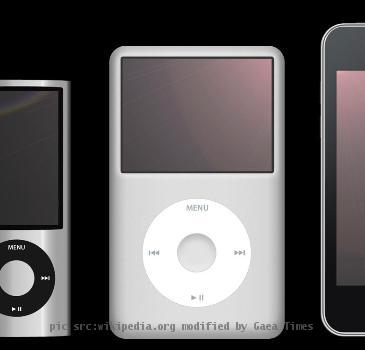
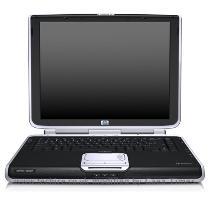
Kids labeled 'generation next' before they grow up
CHICAGO — They aren't even out of grade school. But already, people are trying to name the youngest up-and-coming generation, and figure out who they might be and how they might be different from their predecessors.
At a loss for something more original, many call them Generation Z, because they follow Generations X and Y.
They've also been referred to as Generation Net or "iGen," since they've never known a world without the Internet.
That's the one point most everyone can agree on — that they are the tech-savviest generation of all time, so much so that even toddlers can maneuver their way through YouTube and some first-graders are able to put together a PowerPoint presentation for class.
But beyond that, who are they, really?
Most people agree it's just too early to know for sure. But that hasn't stopped marketers from trying to figure out this young crowd of consumers. Or employers from attempting to prepare for them in the workplace.
Parents, too — many of them Gen Xers — are weighing in, saying they are raising a different brand of kid than baby boomers did.
"I would like to think that ideally, and this might be a bit naive, Gen Xers are a bit more freethinking and not necessarily as compelled to keep up with the Joneses," says Kris Sonnenberg, a teacher in Chicago and 38-year-old mother of three children, ages 8, 12 and 17.
Many parents also think the recession will play a role in shaping who their kids are, and perhaps make them less "entitled," a label that — fair or not — has been slapped frequently on Generation Y, also known as the "millennials."
"We're not afraid to say money's tight, so I feel like our kids are going to have that sense long-term," says Andrew Egbert, a 41-year-old dad who works in manufacturing in Greensboro, N.C. He has a son in fifth grade and a daughter who's a first-grader.
OK, so, let's take a look at the picture that's emerging of Gen Z, for what it's worth. They're young — roughly age 12 or younger.
Generational expert Neil Howe says determining who these youngsters are still is very much a work in progress.
"But there are hints from history," he says.
Howe, who coined the term "millennials," says 2008 may turn out to be one year with a big influence on this generation, due to both the recession and the election of the nation's first black president.
He is calling them the "homelanders" because they are growing up in a time of "greater public urgency and emergency, both at home and around the world."
For that reason, he speculates they could be a new version of the so-called Silent Generation, the group that grew up in the Depression era, who saw the country through World War II and who birthed the baby boomers.
That elder generation was pegged as hardworking and anything but entitled.
Janet Reid, who also has spent time looking at this latest generation, thinks that's a pretty fair appraisal.
"It won't be taken for granted that prosperity is guaranteed," says Reid, a managing partner at Global Novations, a firm that helps corporations develop and attract workers and understand generational differences.
Because they're so hooked into screens of all kinds at a such a young age, she sees Gen Z as more conscious of world events. "They're not just out playing hopscotch," she says.
She also thinks this generation will take characteristics already affiliated with Gen Y to a new level — be that multitasking or a comfort level with different races, ethnicities and cultures.
Seven-year-old Ryan Cook's parents have noticed many of these traits in him.
Asked what a recession is, he's able to tell you that it has to do with the economy and the fact that his parents can't always buy him the things he wants, like video games. "But I think that's fair," he says.
He can tell you that President Barack Obama is the nation's first black president, but — as one whose elementary classroom in suburban Chicago is much more diverse than his parents' — that doesn't seem to phase him much.
"Well, the president is the president," he says nonchalantly. "They don't really change much, except for different speeches."
Like a lot of kids his age, he gets frustrated when he has to sit through TV commercials. He uses his dad's laptop by himself with ease. And though he doesn't have a cell phone, he wants one (partly because his 12-year-old brother has one).
That fits with the notion that, recession or no recession, this generation has a big expectation when it comes to technological gadgets, whether that be cell phones, laptops or the latest version of the iPod or other music players.
And in many instances, their parents are getting them those gadgets, says Nicole Williams, a 39-year-old mom of three who's also a fifth-grade teacher in Seattle.
"They have quick fingers, good muscle strength in those fingers," Williams says, laughing as she refers to the many technological devices her students use in and outside class.
These devices are so coveted — and a sign of status — that theft can be a problem.
That's not surprising to Colin Gounden, a research specialist who thinks access to technology will play a big role in determining which Gen Zers thrive, and which don't.
"There is a segmentation of haves and have-nots that is very global. If you are in Mississippi or Bangalore, if you don't have Internet, your experience is quite parallel," says Gounden, global head of research for Integreon Inc., whose subsidiary Grail Research has compiled a report on Gen Z.
Among other things, he also thinks this generation is more likely to be debt-ridden, partly because getting a college degree will be as important for them as a high school diploma was for their grandparents and great-grandparents.
Gounden is among those who question whether this recession will really impact this generation the way some think it will.
Another skeptic is Jean Twenge, a psychology professor at San Diego State University who's written books and studies that examine entitlement and narcissism in young people.
Twenge cites a recent poll of young people from the 2010 Cassandra Report, compiled by a market research firm known as the Intelligence Group, which found that 81 percent of 7- to 13-year-olds expect they will have their "15 minutes of fame."
"Every arrow points in the direction of continued high expectations and optimism," Twenge says. "Things might be bad sometimes, but they think THEY will make it."
Online:
Grail Research Gen Z report: www.grailresearch.com/gen(underscore)z
Martha Irvine is an AP national writer. She can be reached at mirvine(at)ap.org
Alcatel-Lucent to Launch 100 Gbps Optical Networking Technology
G zed mobile privacy screen for iphone4
Europe is committing fiscal suicide - and will have little trouble finding allies at this weekend's G-20 meetings in Toronto.
Despite the deepening Great Recession threatening to bring on outright depression, European Central Bank (ECB)
G zed mobile privacy screen for iphone4
Posted by: vepemotevi at
12:52 PM
| No Comments
| Add Comment
Post contains 1199 words, total size 10 kb.
September 05, 2010
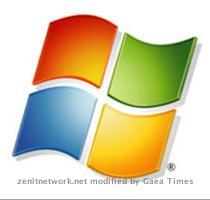
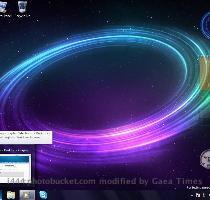

Solar cell inventor wins technology prize
HELSINKI — Michael Graetzel of Switzerland has won the international Millennium Technology Prize for inventing low-cost solar cells used in renewable energy.
The Technology Academy of Finland on Wednesday awarded the German-born chemist the euro800,000 ($960,000) prize for his innovation, which it says "provides a more affordable way of harnessing solar energy" and led to the development of electricity-generating windows and mobile solar panels.
Jeff Koons Art Images on Google
Dexim twin usb car charger for all phones
Dexim Twin USB Car Charger for All Phones; Rosetta Stone, BP, Denny's, Dick's Sporting Goods among big market movers Thursday; Google sparring with Apple again, this time over advertising access to iPhone, iPad; Extra Time
Dexim twin usb car charger for all phones
Posted by: vepemotevi at
08:02 PM
| No Comments
| Add Comment
Post contains 142 words, total size 3 kb.
The biggest problem with having Steve Jobs kick off the WWDC with the iPhone 4 announcement is that all the developer news that also happened gets buried in the press that follows. We would gladly trade three "Steve Jobs Couldn't Get Wi-Fi To Work" articles for just one great new app announcement or dongle sweetness article.
Well, we haven't forgotten that other news happens, so join the Mac|Life stafff, won't you, for all the other stuff that happened this week that isn't just about the iPhone.
Features:
- - There's not a thing in the world quite like good quality free software. And if you're a writer, there are literally hundreds of choices. We've narrowed that down to three gotta haves for your Apple products for when you just have to get that idea out onto the screen.
- - Of course, you're not going to get any writing done if you gets sucked into the gaming world on Facebook, but there are some pretty fun time killers nonetheless.
How-Tos:
- - This regular feature can help you learn a thing or two that you might not have stumbled on yourself. Want to check your iPhone data usage? Want to find an app quickly? Keep reading.
- - See, now, there are things that happen that don't involve Apple products, like the World Cup. But since our readers are Apple junkies, there must be some way to bring futbol and iProducts together. Well we've got the best of the best all ready for you to shout GOOOOOOOOAAAALLLLLLLL!!!!!!
Reviews:
- - The Six-String Thing - Maybe sports isn't really your thing. Or maybe just not soccer. No, maybe you're more a rocking out kinda guy. If that's the case, app developers are taking advantage of all that big screen goodness on the iPad to hook you up with plenty of six-string love.
- - While a lot of apps make use of the iPad's greater screen size to cram more stuff in, an often overlooked wonderful addition is how much more beauty you can see. Star Walk takes the familiar iPhone app and brings the gorgeous night sky and interstellar space to the big screen. And at $4.99? That's a steal, people.

News:
Of course, of course, we're getting to it. Yes, the iPhone 4 was announced, with pre-orders beginning next week and shipping out the week after. Meanwhile, in our photo gallery...and here's the rates on you'll be chewing through thanks to AT&T...plus, the list of where to buy your newest iPhone is growing as ...., though with Apple's tight price controls, it's not like they can offer quite the deep cuts they'd like to...or if you're across the pond (wondering why England could only TIE the US soccer team), ...and if this leak is to be believed, Apple plans on shipping a whole bunch of the new handsets; how many? How does sound?...just don't drop it when you get your hands on the new iPhone, because iFixYouri claims , and a lot.
Of course, the feature packed iOS 4 will be coming along shortly too, and for some people with beta versions of the software, ...maybe instead of worrying so much about rolling out iBooks, Cupertino can , as these gurus are betting the keynote gaffe was related to iOS 4's drivers...maybe someone can look into the and see if there isn't something glitchy going on in there; perhaps someone in the jailbreak community.... since Apple doesn't seem to be able to keep the dev community from , as one enterprising hacker's already jailbroken it.... of course, all that jailbreaking will need updates once iOS goes live with a , though we're sure they'll get around to it...and apparently from Cisco, much like how they got the iPhone name and the iPad from Fujitsu.
Meanwhile, the iPad's been making some news, first because AT&T is often a bag of fail and managed to leave a that Goatse Security drove a truck right through...upon driving said truck, Goatse loaded up on sensitive email addresses attached to the SIMs of these iPads, but really? ...of course we know who in government got their hands on the tablet, as many of the emails grabbed were attached to ...which means of course that now the in this...in more jolly iPad news, the continues to get new wrinkles...and Hulu better get on the stick, because mobilely speaking, netbooks are looking to be around much longer...and we can't tell if this is we've seen lately...or if these are. You tell us.
phone
Bookmark php
Mozilla's previously mentioned Weave project has been a great way to sync nearly everything about your Firefox setup between computers for awhile, despite its experimental label.
The add-on has finally graduated from Mozilla
Bookmark php
Posted by: vepemotevi at
02:12 AM
| No Comments
| Add Comment
Post contains 795 words, total size 6 kb.
September 04, 2010
Samsung to invest $3.6 billion to expand Texas chip-making facility, to hire 500 more workers


Samsung invests $3.6 billion in Texas chip plant
AUSTIN, Texas — Samsung Electronics Co. said Wednesday that due to projected heavy demand for its advanced logic chips the South Korean company will invest $3.6 billion to expand capacity at its plant in Austin, Texas, and hire 500 more workers there by 2011.
Samsung will raise its employee count at the facility to 1,500 from 1,000 by next year, boosting annual payroll to about $105 million. The expansion, which builds out the second phase of its 2.3 million-square-foot complex, will bring its total investment in the Austin plant to more than $9 billion.
Most of the new employees with be engineers and technicians. In addition, the company said almost 3,000 construction workers and equipment vendors will move in and set up the machinery. The plant will build advanced logic devices for Samsung's system large-scale integration business and continue to make NAND flash memory chips, which are used in consumer electronics such as digital cameras, thumb drives and MP3 players.
"Forty-five nanometer and below advanced logic applications are in high demand and respective markets are expected to show substantial growth in the coming years," said Stephen Woo, executive vice president and general manager of Samsung's System LSI division.
Samsung expects the facility will be operational by the second quarter of next year.
Trade group says semiconductor sales should jump 28 percent this year
Posted by: vepemotevi at
08:42 AM
| No Comments
| Add Comment
Post contains 277 words, total size 3 kb.
September 03, 2010

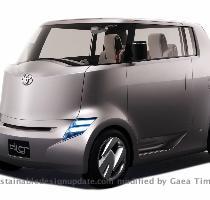
Senate committee approves auto safety upgrades
WASHINGTON — A Senate committee Wednesday approved a bill that would require automakers to meet new safety standards, impose stiff penalties for companies that fail to quickly report defects and double funding for the government agency overseeing car safety.
The Senate Commerce Committee plan is part of a move by lawmakers to tighten the nation's auto safety laws following Toyota's massive recalls.
"This is a critical public safety bill that will affect the lives of millions of Americans on the road," Sen. Jay Rockefeller, D-W.Va., the committee's chairman, said.
Congress hopes to approve the safety legislation by the July 4 holiday recess. It represents the most significant reforms to auto safety rules since the Bridgestone/Firestone Inc. tire recalls of a decade ago.
A House committee approved similar legislation last month.
The Senate plan would require automakers to meet new standards related to brake override systems, vehicle black boxes and auto electronics in the aftermath of Toyota Motor Corp.'s recall of more than 8 million vehicles around the globe.
Under the Senate bill, companies could face penalties of up to $300 million for a slow response to a recall. Toyota paid a record $16.4 million fine for its handling of a recall but critics said the penalty was not severe enough.
Safety advocates also have questioned the ability of the National Highway Traffic Safety Administration to protect consumers from complicated safety defects. To address those concerns, NHTSA could see its annual budget grow from $140 million to $280 million in 2013.
Separately, the Senate committee approved the creation of a $120 million grant program for states that enact laws to bar texting and driving and the use of handheld cell phones behind the wheel.
To qualify, states would need to pass new laws or amend existing ones that would prohibit texting and driving, allow law enforcement officers to have the authority to pull over motorists who use their phones behind the wheel and create minimum fines.
US says nuclear sanctions are toughest ever; Iran’s leader dismisses them as ‘annoying flies’
Bookmark php
We already know Firefox isn't the most pixel-friendly browser, and bookmark bars make it even worse.
Reader Marand shows us an easy way to save space without losing quick acess to your bookmarks
Bookmark php
Posted by: vepemotevi at
04:32 PM
| No Comments
| Add Comment
Post contains 393 words, total size 3 kb.
September 02, 2010
Allscripts buying healthcare info rival Eclipsys
NEW YORK — The health care information technology company Allscripts-Misys Healthcare Solutions Inc. is buying rival Eclipsys Corp. for about $1.3 billion in stock, the companies said Wednesday.
Allscripts is a leader in providing physicians and their offices with ways to keep tabs on patient care records while Eclipsys provides similar services for hospitals and health systems. Those records include test results and medical histories.
The combined company's client base will include over 180,000 U.S. physicians, 1,500 hospitals, and nearly 10,000 nursing homes, hospices and home care organizations, the companies said.
The combined company's increased size and resources may also give its clients greater access to about $30 billion in federal funding for hospital and physician adoption of electronic health records as part of the American Recovery and Reinvestment Act, the companies said. The incentives, which aim to shift the health care system to more efficient portable electronic records from paper records, begin in 2011.
"For the first time, we have a company with the size, scale and reach to allow that to happen, said Allscripts Chairman and CEO Glen Tullman, citing the shift to electronic records. "Think of this as doing what the Internet did for computers."
Adoption of electronic records by physicians is projected to grow from 12 percent to 90 percent by 2019, the companies said, citing a Congressional Budget Office's March 2009 report. That same report said total spending on health care services would shrink because of the reduction in paperwork and inappropriate tests, along with lower administrative overhead. The report did not provide an estimate, but said there would likely be lower costs for private payers and lower health insurance premiums in the private sector.
Under the deal, Eclipsys shareholders will receive 1.2 Allscripts shares for each Eclipsys share, a 19 percent premium over its closing price Tuesday, the companies said.
Shares of Allscripts, based in Chicago, fell $1.66, or 9 percent, to $16.76 in morning trading Wednesday while shares of Eclipsys, based in Atlanta, rose 53 cents, or 2.9 percent, to $19.04.
Allscripts' Tullman will be CEO of the combined company while Eclipsys CEO Phil Pead will be chairman.
The deal has been approved by both companies' boards of directors and is subject to shareholder approval of both companies.
Separately, the British information services company Misys PLC will reduce its almost 55 percent stake in Allscripts to 10 percent through an underwritten secondary equity offering of its Allscripts shares and by selling shares to Allscripts.
Misys acquired a 54.5 percent stake in Allscripts for $330 million in 2008.
In a separate deal in the healthcare technology field, Cardinal Health Inc. said Wednesday it is buying Healthcare Solutions Holding LLC for $517 million, in a move to expand its tools and services for health care data and claims management.
UBS, Barclays Capital and J.P. Morgan acted as financial advisors to Allscripts in the Eclipsys deal.
Allscripts expects its buyout of Eclipsys to boost net income, excluding charges, in 2011. The company expects its fiscal year net income in 2010 to reach the high end of its 64 cents to 65 cents per share guidance, excluding charges, on revenue between $700 million and $705 million. Analysts polled by Thomson Reuters expect net income of 65 cents per share on $702.3 million in revenue.
The fiscal year ends in May. After the buyout closes, Allscripts expects to report financial results on a calendar year basis.
Car buyers chose function over flash in auto Web sites
Samsung b3410
A TouchWiz felhasználói felülettel rendelkezÅ‘ Samsung B3410 kapcsán meglepve vettem tudomásul, hogy mind az alapkijelzÅ‘, mind pedig a fÅ‘menü egyetlen, nem bÅ‘vÃthetÅ‘ slide-dal bÃr.
Az alapkijelzőre a baloldali widget tárból ránthatunk ki
Samsung b3410
Posted by: vepemotevi at
07:42 PM
| No Comments
| Add Comment
Post contains 633 words, total size 5 kb.
September 01, 2010
Summary Box: Google's mobile ad feud with Apple
CHANGING THE RULES: Google thinks Apple is imposing new restrictions that could hobble its ability to sell and place ads on the iPhone, iPad and iPod Touch.
THE POSSIBLE FALLOUT: AdMob, a mobile ad service recently acquired by Google for $750 million, says Apple's changes will stifle competition and reduce revenue for developers of applications on the iPhone and iPad.
THE TENSION: Apple tried to buy AdMob before getting trumped by Google last fall. That was the latest bit of bad blood between Google and Apple, one-time allies whose relationship has deteriorated as they have increasingly clashed in the mobile device market.
Swiss scientist Michael Graetzel wins €800,000 technology prize for cheap solar cells
Sony ericsson mbs 100 bluetooth speaker retail packaging
Sony Ericsson Portable Light Weight Wireless Bluetooth Speaker for Aino, C510a, C902, C905a, Equinox, Naite, Saito, TM506, W350a, W518a Multimedia Smartphone Cellphone [Retail Packaging] You want to enjoy music with powerful sound
Sony ericsson mbs 100 bluetooth speaker retail packaging
Posted by: vepemotevi at
12:52 PM
| No Comments
| Add Comment
Post contains 181 words, total size 2 kb.
32 queries taking 0.0754 seconds, 92 records returned.
Powered by Minx 1.1.6c-pink.









